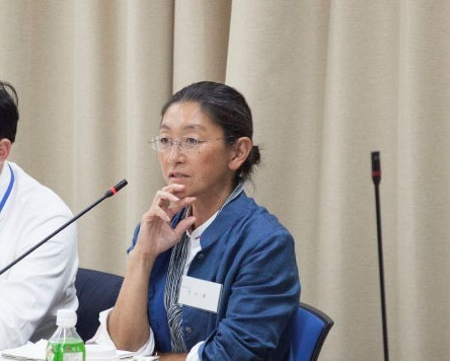 清水丽现为东京大学东洋文化研究所特任准教授。1967年生于东京,1990年毕业于筑波大学第一学群第一学类东洋史专科,1993年毕业于筑波大学大学院硕士课程区域研究研究所,98年修毕筑波大学大学院博士课程国际政治经济学研究所的博士班学分,2002年取得筑波大学博士学位 (国际政治经济学),02年起国士馆大学21世纪亚洲学部担任副教授,升任同学部教授,08-14年担任桐荫横滨大学健康运动政策学部教授,2014-16年担任东洋文化研究所特任研究员,17年起担任同研究所特任准教授。专长为亚洲政治外交史,日中台关系,日台政治外交史。
清水丽现为东京大学东洋文化研究所特任准教授。1967年生于东京,1990年毕业于筑波大学第一学群第一学类东洋史专科,1993年毕业于筑波大学大学院硕士课程区域研究研究所,98年修毕筑波大学大学院博士课程国际政治经济学研究所的博士班学分,2002年取得筑波大学博士学位 (国际政治经济学),02年起国士馆大学21世纪亚洲学部担任副教授,升任同学部教授,08-14年担任桐荫横滨大学健康运动政策学部教授,2014-16年担任东洋文化研究所特任研究员,17年起担任同研究所特任准教授。专长为亚洲政治外交史,日中台关系,日台政治外交史。Full Text
簡体字 / 正體字 / English摘要:
1972年日华断交之前,担负日华关系主要的政治外交管道,并未因断交而结束其角色,而是转型爲半官方的管道支持着之後的日台实务关系。此半官方管道并不仅仅是蒋介石时期的遗产,不如説是以马树礼为中心的对日工作,在蒋经国之下重新整合,但依旧善用蒋介石牌而形成的管道。再者,蒋经国时期的对外政策,一方面加强台湾爲了生存的现实面,另一方面仍然维持着国共内战的外交思维。这个蒋经国时期对外政策的特徵,也影响到对日工作的形成。
之後对日政策在李登辉时期虽然在李登辉主导下重组,但是在李登辉成为新的日台关系的象徵之前,仍然延续了过去的日华关系的作法。
摘要:
1972年日華斷交之前,擔負日華關係主要的政治外交管道,並未因斷交而結束其角色,而是轉型爲半官方的管道支持著之後的日台實務關係。此半官方管道並不僅僅是蔣介石時期的遺產,不如説是以馬樹禮為中心的對日工作,在蔣經國之下重新整合,但依舊善用蔣介石牌而形成的管道。再者,蔣經國時期的對外政策,一方面加强台灣爲了生存的現實面,另一方面仍然維持著國共内戰的外交思維。這個蔣經國時期對外政策的特徵,也影響到對日工作的形成。
之後對日政策在李登輝時期雖然在李登輝主導下重組,但是在李登輝成為新的日台關係的象徵之前,仍然延續了過去的日華關係的作法。
Abstract:
Before diplomatic relations between Japan and ROC broke off in 1972, Japan-ROC relations were primarily focused on political diplomacy. Official break in diplomatic relations did not terminate political relations, bet pragmatic relations were maintained through a semi-formal channel. Rather than considering this semi-formal channel as Chiang Kai-shek’s legacy, it’s more appropriate to consider this as a product of Ma Su-li’s Japan policy that integrates new and old leverages under Chiang Ching-kuo’s new regime. Ching Ching-kuo’s foreign policy contained both elements of the pragmatics of Taiwan’s survival as well as diplomatic ideals inherited from the Chinese Civil War.
With change in leadership, President Lee Teng-hui reshaped Taiwan’s Japan policy but prior to its accomplishment, the semi-formal channel employed during Chiang Ching-kuo’s remained in operation.